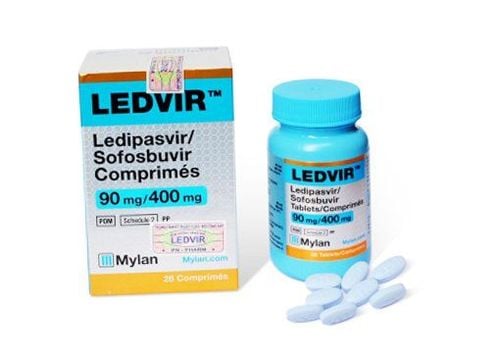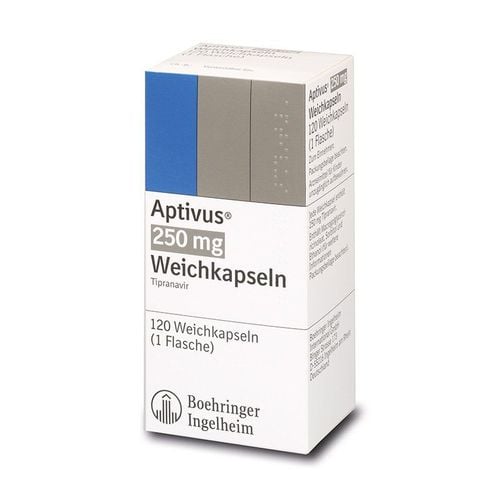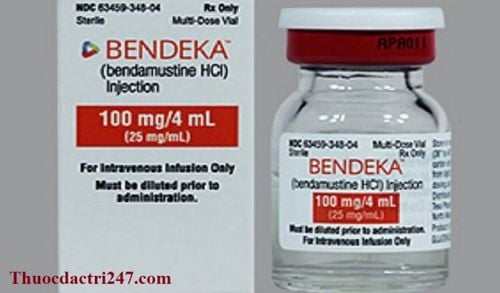This is an automatically translated article.
Thyfacin drug with the main ingredient thymosin alpha 1 is usually indicated for the treatment of chronic hepatitis B, C and supportive treatment for immunocompromised patients. So how should Thyfacin be taken?
1. Uses of Thyfacin
Thyfacin medicine contains the main ingredient thymosin alpha 1 with the mechanism of action related to immune enhancement, mainly by enhancing T cell function. In many in vitro experiments, thymosin alpha 1 has shown the ability to increase enhances the maturation and differentiation of T lymphocytes such as CD4+, CD8+, and CD3+ cells. In addition, thymosin alpha 1 increases the production of migration inhibitory factor (MIF), and increases the antibody response to antigen-dependent T cells. In vivo studies have shown that thymosin alpha 1 protects against bone marrow damage, tumor growth and opportunistic infections. Currently, Thyfacin is indicated for use in the following cases:
Treatment of chronic hepatitis B Treatment of chronic hepatitis C Support of immunocompromised patients due to chemotherapy. patients with primary liver carcinoma Large cell lung carcinoma Breast cancer Non-hodgkin lymphoma Head and neck cancer Leukemia Pancreatic carcinoma Renal cell carcinoma Contraindication of the drug Thyfacin include:
Patients with hypersensitivity to thymosin alpha 1 or any of the components of the drug The risk and benefit factors need to be considered in organ transplant patients receiving immunosuppressive drugs
2. Dosage of Thyfacin
Thyfacin medicine is prepared in the form of dry powder when used, it will be mixed with distilled water for subcutaneous injection, not for intramuscular or intravenous injection. Dosage of Thyfacin drug is:
Chronic hepatitis B: Thyfacin monotherapy or combination with interferon at a dose of 16 mg subcutaneously, twice a week with doses 3-4 days apart for 6-12 month. However, patients under 40 kg should receive a dose of 40 mcg/kg Chronic hepatitis C: 1.6 mg subcutaneously, twice a week for 12 months Oncology: 1.6 mg subcutaneously, twice a week is recommended for 6-12 months or between chemotherapy courses There have been no reports of intentional or accidental overdose in people using Thyfacin. Animal toxicity studies have shown no adverse reactions for a single dose above 20 mg/kg and for repeated doses above 6 mg/kg/day for 13 weeks, the highest dose reported. research. There were no adverse reactions at the 16 mg/kg dose.
3. Thyfacin side effects:
In some patients when using Thyfacin, side effects may occur such as:
Reactions at the injection site: erythema, temporary muscle atrophy Polyarthritis pain with hand edema and rash Elevated ALT enzyme too high Treatment should be continued, unless there are signs or symptoms of liver failure
4. Be careful when using Thyfacin
Some general notes when using Thyfacin include:
The study on the mutagenicity of Thyfacin showed no signs of harm There are no published safety and efficacy statements when using Thyfacin in patients under 18 years of age Thyfacin is not known to cause harm to the fetus when indicated in pregnancy or to affect fertility, but caution should still be exercised when administered to a pregnant woman, and only when clearly needed. Necessary caution when using thymosin alpha 1 for nursing women, because it is not known whether the drug is excreted in breast milk. It is best when taking Thyfacin that patients need to read the instructions carefully before using and it is necessary to consult Consult your doctor or pharmacist for the best prescription.
Please dial HOTLINE for more information or register for an appointment HERE. Download MyVinmec app to make appointments faster and to manage your bookings easily.













